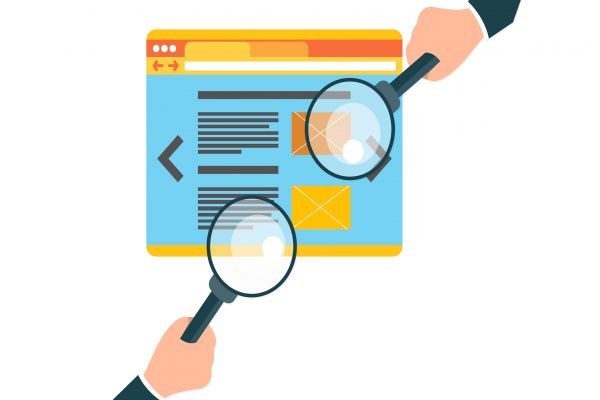Prescription drug costs can be overwhelming. People without health insurance can be the hardest hit, but even those who do have insurance may find copays and deductibles straining their resources. Here are some tips and resources that could help you reduce your costs.
- Talk with your healthcare team. There may be a patient assistance program, an alternate drug, or another way to achieve the same treatment goals at a lower cost.
- Contact Roswell Park’s financial counseling team. They provide help for Roswell Park patients who do not have health insurance or who cannot afford their out-of-pocket costs. This program covers hospital, physician and infusion costs, but not oral medications. Call 716-845-4782 to speak with a financial counselor.
- Check your insurance company’s formulary. Ask your healthcare insurer for a copy of their formulary and show it to your doctor. A formulary is the list of drugs your insurer covers under your policy. In many plans, the formulary is divided into levels (or tiers), with increasingly higher copays at each tier. If your medication is not on the formulary, or if it is in the most expensive group, your doctor may be able to find an alternate medication from the list.
- Call local pharmacies. Make a list of all your prescription medications, the dose of each one, how often you take it and how much you pay for it. Call different pharmacies to see what they charge for that exact drug and dose. Certain chain pharmacies and retail stores may have special programs for generic medications. (If you wind up using more than one pharmacy, be sure that each pharmacy knows about all the medications you are taking, so they can alert you about any possible adverse drug interactions.)
- Get a long-term supply. If you take the same drug every day, or a few times every day, consider getting a 90-day supply instead of a 30-day supply; you may get a discount. You will need your doctor or nurse practitioner to write you a prescription for 90 days.
Resources and Programs for Older Adults
- Medicare: Toll-free: 800-MEDICARE (800-633-4227)
Anyone covered by Medicare can get prescription drug coverage through one of two programs:
1. Medicare Prescription Drug Plan (Part D)
This is an add-on for people who have an original Medicare plan. Keep in mind that Medicare Part D has a low-income subsidy (LIS) program, also called Extra Help, which helps people with limited income pay for their Part D premiums, deductibles and copayments.
2. Medicare Advantage Plans (Part C)
This includes coverage for hospital services (Part A), medical services (Part B) and prescription medications (Part D).
- Medicare Rights Center: Toll-free Helpline: 800-333-4114
This nonprofit organization works to ensure that older adults and people with disabilities have access to affordable healthcare. They offer counseling, educational programs, advocacy and public policy initiatives. - NYS EPIC Program: Toll-free: 800-332-3742. Hours: 8:30 a.m. -5:30 p.m., Monday-Friday.
The Elderly Pharmaceutical Insurance Coverage program is a New York state supplemental program for income-eligible seniors. EPIC provides coverage for Medicare Part D and EPIC-covered drugs after the Medicare Part D deductible has been met. - BenefitsCheckUp
This free online tool for older adults from the National Council on Aging (NCOA) enables you to search a resource library of 2,500 federal, state and private programs and their eligibility requirements.
Financial Assistance Programs from Not-for-Profit Groups (.org)
- HealthWell Foundation: Toll-free: 800-675-8416
This foundation provides financial assistance to eligible patients to help cover the costs of prescription drug coinsurance, copayments, deductibles, health insurance premiums and certain other out-of-pocket health care costs. - NeedyMeds: Toll-free: 800-503-6897 (bilingual)
This program helps people who are having trouble paying for medications and people who need help with the application process. It also offers a drug discount card. - Patient Advocate Foundation (PAF): Toll-free: 1-800-532-5274
PAF provides case management services and financial aid to Americans with chronic, life-threatening and debilitating illness. - PAF Co-Pay Relief Program: Toll-free: 866-512-3861
Provides copayment relief to help ensure patients’ access to care. - CancerCares: Toll-free: 800-813-HOPE (800-813-4673)
This program offers the expertise of medical social workers as well as limited financial assistance for cancer-related costs and copays. - CancerCares Copay Foundation: Toll-free: 866-55-COPAY (866-552-6729)
This site lists the assistance available according to cancer diagnosis. - Patient Access Network (PAN): Toll-free: 866-316-7263
PAN helps patients who have out-of-pocket expenses (copays, deductibles, etc.) that prevent them from getting treatment.
Patient Assistance Programs from For-Profit Pharmaceutical Companies (.com)
Patient Assistance Programs (PAP) are designed to support low-income U.S. residents with free or low-cost prescriptions. The programs usually cover only brand-name drugs and are run by the companies that make those drugs.
- RxAssist
This site provides a database of pharmaceutical companies’ patient assistance programs, as well as a prescription medication discount card. - Partnership for Prescription Assistance: Toll-free: 888-477-2669
This database includes pharmaceutical companies’ patient assistance programs as well as public, state and private patient assistance programs. - RX Hope
Here you’ll find pharmaceutical companies’ patient assistance programs and an alphabetical list of pharmaceutical companies. - Medication Advocate
This software platform enables healthcare providers to identify and qualify patients for patient assistance programs. Providers must subscribe to the service. - Drug-Specific Programs
Some pharmaceutical companies run their own programs for people who don’t have insurance or who have financial concerns. If one of your medications is very expensive, call the pharmaceutical company and ask if they have such a program available. Here are some programs from companies that make oncology medicines: Lilly Cares, Johnson & Johnson Patient Assistance Foundation, Celgene Patient Support, Amgen Safety Net, Merck Patient Assistance Program, and Genentech Patient Foundation.
Online Discount Pharmacy Programs and Coupons
Most of these programs compare local prices to find the lowest price in your area, and/or provide coupons or discount cards. In general, these discount cards and coupons cannot be used with insurance, Medicare or Medicaid benefits.
- Good RX
- RxSaver
- U.S. Pharmacy Card Discount Drug Network
- Discount Drug Network
- ScriptRelief
- Singlecare
- Drugs.com Drug Discount Card
- Internet Drug Coupons
Never miss another Cancer Talk blog!
Sign up to receive our monthly Cancer Talk e-newsletter.
Sign up!


